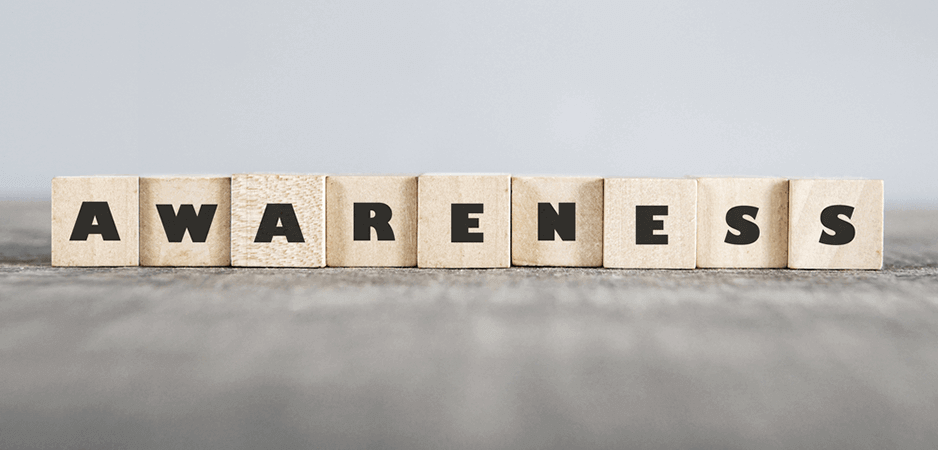History teaches us nothing, except the importance of cultivating the faculty of awareness.
Historian Alfred McCoy has been tracking the rise of China and the decline of the American hegemon, a process he claims set in at the turn of the 21st century. He cites George W. Bush’s foreign policy as a catalyst, but also draws our attention to a particular event: the integration of China into the World Trade Organization in 2001. Highlighting the blindness of Washington pundits to the play of historical forces, he states in TomDispatch: “There was almost no awareness of what might happen when a fifth of humanity joined the world system as an economic equal for the first time in five centuries.”
Here is today’s 3D definition:
Awareness:
1) A mental faculty so fundamental no one is aware of what it might be
2) Analogic understanding of dynamic processes working in parallel and on multiple levels, in which all working definitions of both concrete and abstract entities can only by provisional
3) The opposite of digital information, big data and artificial reasoning
Contextual note
In other words, awareness belongs to another dimension, always one step beyond the realm of data and data analysis. It is both individual and collective, the non-linear result of converging as well as diverging perceptions. Philosophers debate the status of consciousness, some believing they can prove that it is a pure product of brain function. Others claim the “mind is something else, something over and above its physical basis in the brain.”
However energetic the debate, there will be no winner. Neither of those positions has a hope of being enshrined as the new foundation of truth. Non-philosophers simply have to deal with their everyday understanding of how they, their peers and their governments interact with the real world.
Since the beginning of the new millennium, we have seen an explosion of investment in “intelligence” (military, political and business), big data and, more recently, the technology of artificial intelligence, promising to make decisions on a more factually informed basis. Does that mean that today’s and tomorrow’s power players won’t make the same mistakes? Or does it tell us something more important: That “awareness” is something so different from data and algorithms that, however far we advance with bigger and bigger data, more and more comprehensive “intelligence” about individual and collective behaviors, and increasingly sophisticated algorithms reproducing and outperforming our traditional models of calculated intelligence, awareness — or the lack of it — will be the key to future political and economic successes and failures? We even need to ask ourselves this: Should we fear that, with so much data and algorithmic reasoning, we will actually become less aware and make even bigger misjudgments about the drift of history?
McCoy anticipates a “major shift in the nature of the world order,” though he doesn’t claim to know exactly how it will play out. Most commentators tend to see the current global instability — symbolized by Brexit and Donald Trump — as a storm to be weathered before reestablishing the post-Cold War “new world order” (George H.W. Bush) and the rules-based global system instituted 70 years ago.
Historical note
McCoy gives a detailed description of China’s impressive evolution throughout this period and the scale of its ambition. He also correctly identifies the limits of that ambition, constrained by China’s “self-referential culture,” incapable of providing a system of values that could become a universally accepted framework of agreed principles leading to rules of interaction and corresponding laws.
 Historians are naturally “aware” of a basic truth that politicians always neglect: That power, especially hegemonic power, depends on a complex set of conditions that go beyond the two factors politicians believe they control: money (the economy) and military clout.
Historians are naturally “aware” of a basic truth that politicians always neglect: That power, especially hegemonic power, depends on a complex set of conditions that go beyond the two factors politicians believe they control: money (the economy) and military clout.
McCoy thus describes the process by which US has moved away from a role of global responsibility (based on money and military bases but implying much more) toward the “America First” nationalism of Trump. China, in contrast, has shifted from Maoist autarchy to a philosophy and well-financed policy of “global collaboration.” As McCoy remarks, “Within months of Trump’s entry into the Oval Office, the world was already witnessing a sharp rivalry between Xi’s advocacy of a new form of global collaboration and Trump’s version of economic nationalism.”
In other words, the US — the victorious nation that initially used Bretton Woods, the United Nations, the Marshall Plan, and later the Peace Corps to create a strong image of collaborative global leadership without abandoning its internal culture of capitalist competition — has now replaced the pretense of collaboration by competition and opened the playing field for the Chinese to become the masters of global collaboration.
The fact that China’s self-referential culture may constitute an obstacle to the establishment of a new empire means that we should all make the collaborative effort to fine tune our awareness of how the world’s cultures may interact in the coming decades. Or else envisage the same dire outcome McCoy evokes of a climate out of control and a planet no longer fit to support the various cultures competing with each other simply to survive.
*[In the age of Oscar Wilde and Mark Twain, another American wit, the journalist Ambrose Bierce, produced a series of satirical definitions of commonly used terms, throwing light on their hidden meanings in real discourse. Bierce eventually collected and published them as a book, The Devil’s Dictionary, in 1911. We have shamelessly appropriated his title in the interest of continuing his wholesome pedagogical effort to enlighten generations of readers of the news.]
The views expressed in this article are the author’s own and do not necessarily reflect Fair Observer’s editorial policy.
Support Fair Observer
We rely on your support for our independence, diversity and quality.
For more than 10 years, Fair Observer has been free, fair and independent. No billionaire owns us, no advertisers control us. We are a reader-supported nonprofit. Unlike many other publications, we keep our content free for readers regardless of where they live or whether they can afford to pay. We have no paywalls and no ads.
In the post-truth era of fake news, echo chambers and filter bubbles, we publish a plurality of perspectives from around the world. Anyone can publish with us, but everyone goes through a rigorous editorial process. So, you get fact-checked, well-reasoned content instead of noise.
We publish 2,500+ voices from 90+ countries. We also conduct education and training programs
on subjects ranging from digital media and journalism to writing and critical thinking. This
doesn’t come cheap. Servers, editors, trainers and web developers cost
money.
Please consider supporting us on a regular basis as a recurring donor or a
sustaining member.
Will you support FO’s journalism?
We rely on your support for our independence, diversity and quality.






